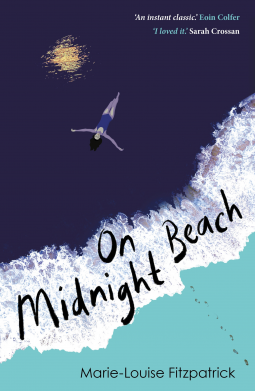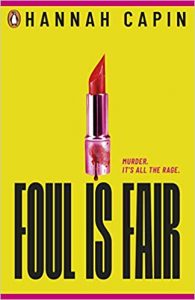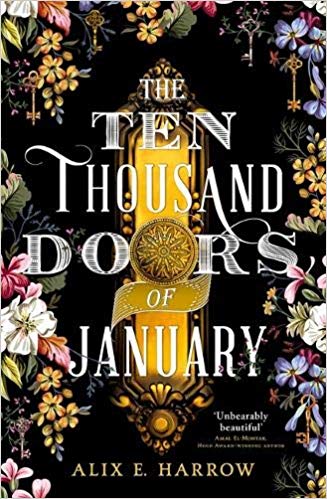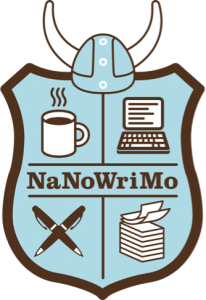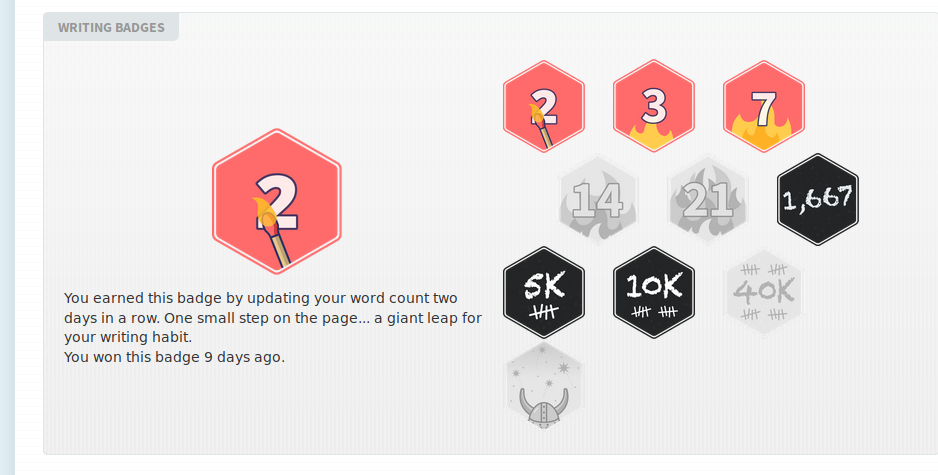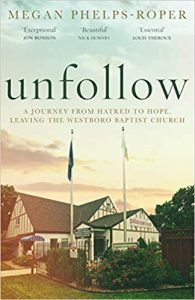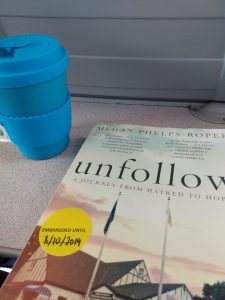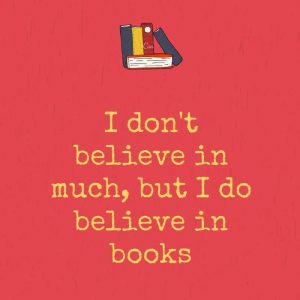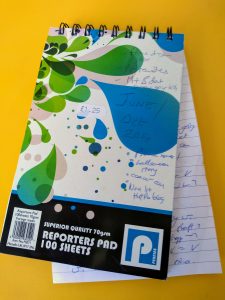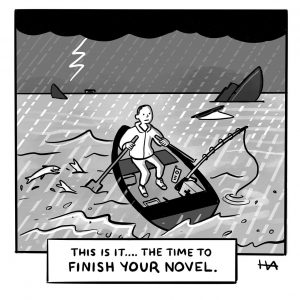
History is full of stories of people who write against the odds, with the threat of jail, disgrace or death by consumption hanging over their heads and somehow this spurs them on to create works of great mastery, but to be honest most writers I know function best when they have warm feet, a steady flow of tea or coffee and the knowledge that their writing won’t land them in jail. Still, back when I started I always used to think that writing would be what got me through any big trauma, that it would be something to focus on, to escape into, when normal life imploded.
And then All This started. (All This is the universally accepted shorthand for saying “a bloody great pandemic which is killing people around the world and creating a global recession as well as making us all stay home going a little crazy.”) It’s changed life for very single one of us, affecting our work in so many different ways. So what kind of lockdown writer are you…?
1: The Barbara Cartland
I don’t mean by this that you’re a pink-wearing aristocrat with the habit of making sexist pronouncements and wearing too much mascara but that you’re incredibly productive (Babs, God love her, wrote over 700 books.) From day one you were rattling off chapter after chapter. The words flow, the plots knit together, and after you wore through your keyboard you took to lying on a chaise lounge dictating your work to your butler. Possibly. You are probably a lovely person, but I’m afraid the rest of us don’t like you very much right now.
2: The Zoom Juggler
Working from home means that you still don’t technically have any extra time to write your novel. But if you switch off your camera and mute your mic during that interdepartmental catchup then maybe… Don’t worry, we won’t tell.
3: The Hemingway
You are drunk. You have been drunk since last Tuesday, whenever that was. But it’s OK because you’re a bloody genius.
4: The harassed parent
Reading social media updates from Barbara Cartlands is likely to send you into a fizzing impotent rage. Because you used to be a writer but now, it seems, you are a full time educator, housekeeper and, according to your offspring, oppressive slave driver. You’re either writing in bursts while the kids are distracted by Disney Plus, working late at night and producing trippy, semi-conscious prose or getting up at sunrise and feeling like a zombie for the rest of the day.
5: The Switcher
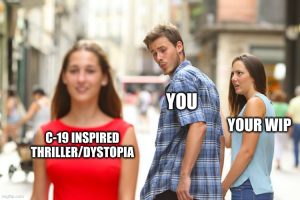
Before All This started you were plugging away quite nicely on a neat sci-fi concept or a cosy mystery but then The Big Idea came. You’ve dropped everything and are now working on a dystopian novel set in a post-pandemic civilisation, or a thriller in which a Jack Ryan character is tracking down an evil virus-releasing organisation, or a lockdown-inspired romance (working title: Stuck With You.) A tiny part of your brain is shouting Noooooo. You should probably listen.
6: The Harper Lee
The lockdown has made virtually no difference to you because you never go out anyway, although you welcome the introduction of social distancing.
7: The cov-crastinator
You always said you’d write a novel when you have time – and now you have time, hooray! And you’ll start just as soon as you’ve baked that sourdough, finished that Zoom birthday party for your brother’s mate’s girlfriend and cleaned the inside of your grocery cupboard. And finished that blog post about different types of lockdown writer.
8: The too-anxious-to-write one
Provided you’re healthy and have enough money to survive lockdown seems like the ideal scenario – trapped at home with little else to do but write your novel. But the reality is that there’s a huge terrifying thing happening in the world at the moment, people are dying, people are losing their livelihoods, you’re legally banned from visiting your own granny, the government is making you angry and the conspiracy theorists on Twitter are making you even angrier. Some people write to escape from reality but others can’t work when the anxious noise from the world is too great. Now might be the right time to read lots of wonderful escapist fiction instead.
At the moment while we’re still in the thick of it, it’s hard to tell how the lockdown will truly change our lives or influence our writing. Elements of it will creep into the stories we tell, adding a sense of unease and panic, or a streak of reality to tales of courage and pulling together. My feeling is that we should just keep writing whenever we have the time, but without piling on the pressure to get things finished. I’ll let you know if I ever get around to following my own advice. In the meantime I look forward to going to lots of real-life, wonderful book launches when All This is over. See you on the flipside.
Tweet me your lockdown experience here
Fancy reading something escapist? There’s a few recommendations here and here
My friend has written a short piece on writer’s block during All This.

